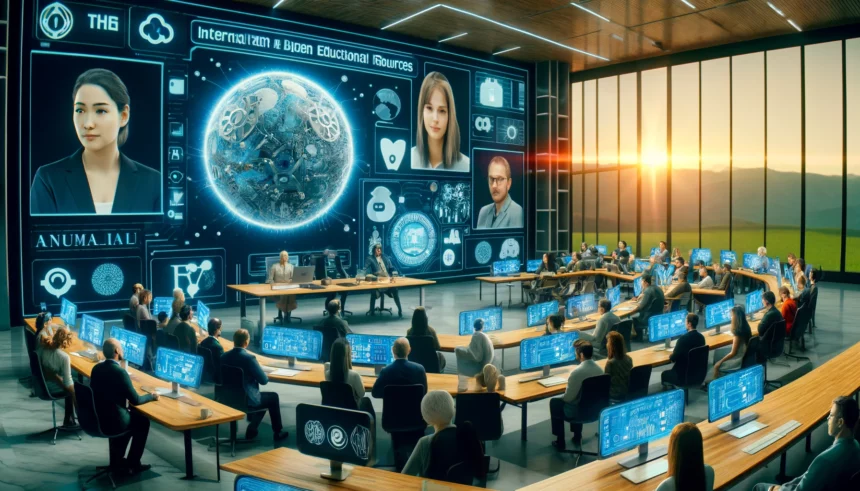Exploring the Convergence of Emerging Technologies with Open Educational Resources
Last week’s UNESCO OER Dynamic Coalition Webinar, held during Open Week 2024, sparked a fascinating discussion among experts on the convergence of artificial intelligence (AI), blockchain technology, and Open Educational Resources (OER). The event aimed to shed light on how these technologies could collectively enhance global education.
UNESCO’s Blueprint for OER
Fostering Transformative Educational Practices
The collaboration of AI and blockchain with OER could radically transform educational practices. By combining AI’s analytical power, blockchain’s security features, and pedagogical expertise, we could see a significant digital transformation in how we teach and learn.
It’s crucial to explore not just the adoption of these technologies but how to harness them effectively to support educational goals.
Identifying Challenges and Embracing Opportunities
Insights from Global Experts
- AI in Education: Aras Bozkurt, from Anadolu University, suggests that AI can make learning more dynamic and accessible. Yet, it also poses challenges like maintaining academic integrity in the age of AI-generated content.
- Blockchain’s Role: Perrine De Coëtlogon of Lille University points out that blockchain can revolutionize the handling of academic credentials, promoting transparency and ease of access.
Anthony Fischer Camilleri, a senior partner at Slovenia’s Knowledge Innovation Center, mentions the scalability and decentralization challenges in creating a reliable OER ecosystem.
Best Practices for Lifelong Learning and Trackable OER
Notable Initiatives
The Horizon 2020 Qualichain project at The Open University is leading the way in utilizing blockchain for lifelong learning. This initiative not only facilitates transparent accreditation but also tailors educational recommendations to individual needs.
The University of Lille issued over 56,000 blockchain-based digital credentials by 2023, which were verified globally, illustrating the robustness and scalability of blockchain in managing credentials.
Towards a Cooperative Future
UNESCO’s Forthcoming Study on Blockchain and OER
A highly anticipated UNESCO study, set to be released in mid-2024, aims to further explore how emerging technologies can be seamlessly integrated into education. This study underscores the importance of a collaborative approach, rallying the global OER community to embrace technologies that foster accessible and high-quality educational content.
Conclusion
The synergy between emerging technologies and OER is paving the way for a revolutionary shift in educational methodologies. As we delve deeper into this promising fusion, it’s clear that the focus must remain on creating inclusive and effective learning environments. The ongoing dialogue and research spearheaded by organizations like UNESCO are crucial in navigating this exciting frontier.
Engaging with these technological advancements not only enriches the educational experience but also ensures that learning is a lifelong journey accessible to everyone, everywhere.
















